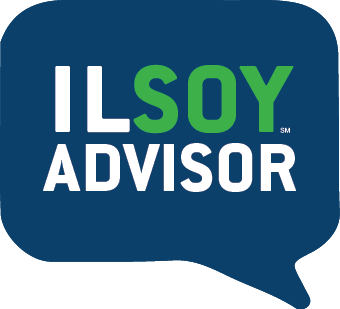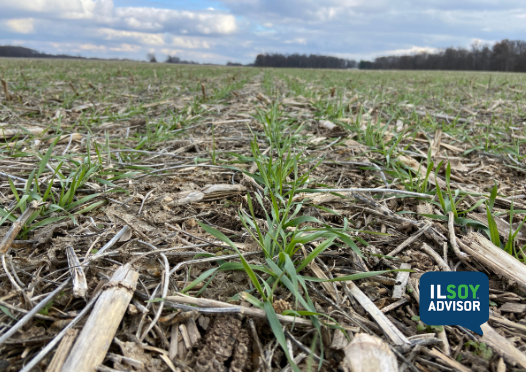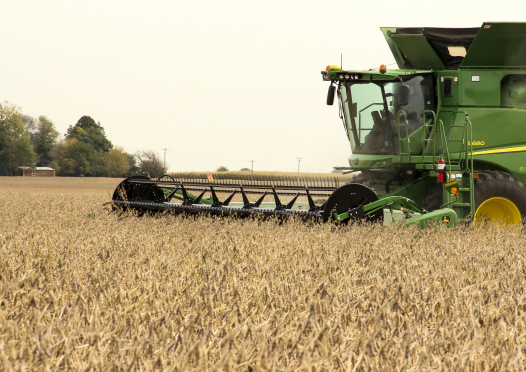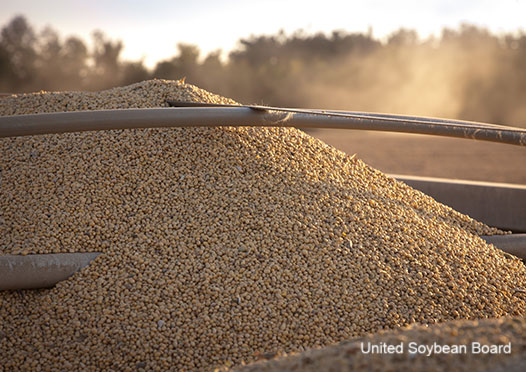ILSOYADVISOR POST
Agronomy: Recent Rapid Increases in Soybean Yields Attributed to Technology and Technical Backing
Rapid increases in yield gains in soybeans are attributed to technology, focus on better management and contributions from the army of CCAs across Illinois who help farmers better manage their crops.
I started my career as an agronomist nearly 16 years ago. One comment I remember hearing often from farmers (many of whom had been farming longer than I’d been alive) was that they felt like they just couldn’t get any more yield out of their soybean acres. In fact, there seemed to be an overwhelming sense among these farmers that there had been no yield gains in decades. Although I claim no specific role in changing this attitude, it’s one that I don’t hear very frequently any more. In fact, the comment that I’m more likely to hear is something like, “I can’t believe those beans yielded so well!” And the question I’m left asking myself is, to whom or what is the credit due?
Before trying to answer that question, I was curious and dug in to the data to see exactly what sort of progress has been made. USDA has Illinois soybean yield data dating back to 1924. Between then and 2015, soybeans have gained an average of 0.4 bu/acre each year, a number which is mostly in line with what I’ve heard breeders say is the average rate of yield gain of a third of a bushel per year. What’s interesting is when you look at how that number has changed. Over the last 20 years we’ve been gaining yield at a rate of 0.6 bu/acre. In the last 10 years, that number is nearly 1 bu/acre (0.98 to be precise)! Put another way, according to the trend line, we’re producing 10 more bushels on every acre in Illinois than we were 10 years ago. That is an amazing fact.
So, who gets the credit for this significant increase in annual yield gain? As with many things in life, there are multiple answers to this question. One of the obvious answers is soybean breeders—those individuals whose goal in life is to develop a variety that is better than the current commercial standards. “Better” is most certainly measured in yield, but that yield can come from a laundry list of agronomic improvements—disease tolerance, resistance to lodging and shatter, tolerance to high or low pH soils, etc. Given the host of recently developed and highly specialized breeding techniques, we can expect the breeders to continue to contribute to yield gains.
Clearly, another contributor to these yield gains is the increased level of management that growers have put into their soybean crop. Soybeans are managed very differently than what they were just a decade ago. Planting dates have shifted dramatically earlier, seed treatments are commonplace (seed treatments have helped to mitigate concerns of stand loss), seeding rates have declined, growers moved from drills (controlled spill) to planters (more precise and controlled placement), growers are paying closer attention to soil fertility and the nutrition of their soybean crop, and the use of fungicides and insecticides to control yield-robbing pests has increased to protect yield potential.
Ultimately it’s the soybean grower who deserves the credit. The hours spent selecting the right varieties for your farm and planning the right basic agronomy, right fertility and pest control programs, and the care with which you manage your land all add up to more bushels per acre.
Making changes to the way you manage your beans probably didn’t come easy. Many of you spent a lot of time in consultation with experts and advisers, invested in new equipment, and tried out new practices, products or techniques on your own farm. It’s likely that many of those experts that you consulted with were Certified Crop Advisers. In Illinois, there are over 1300 of them—working in agricultural retail outlets, as consultants, independent seed sellers, and seed and chemical company representatives. These CCAs have demonstrated their competency by passing tests to become certified and are constantly adding to their knowledge base through continuing education. Their goal is to deliver knowledge and insight to your farming operation so that you can continue doing what you do best even better.
Andy Knepp is the past chair of the Illinois Certified Crop Advisers. He currently works in Technology Development and Agronomy at Monsanto.





Comments
Add new comment